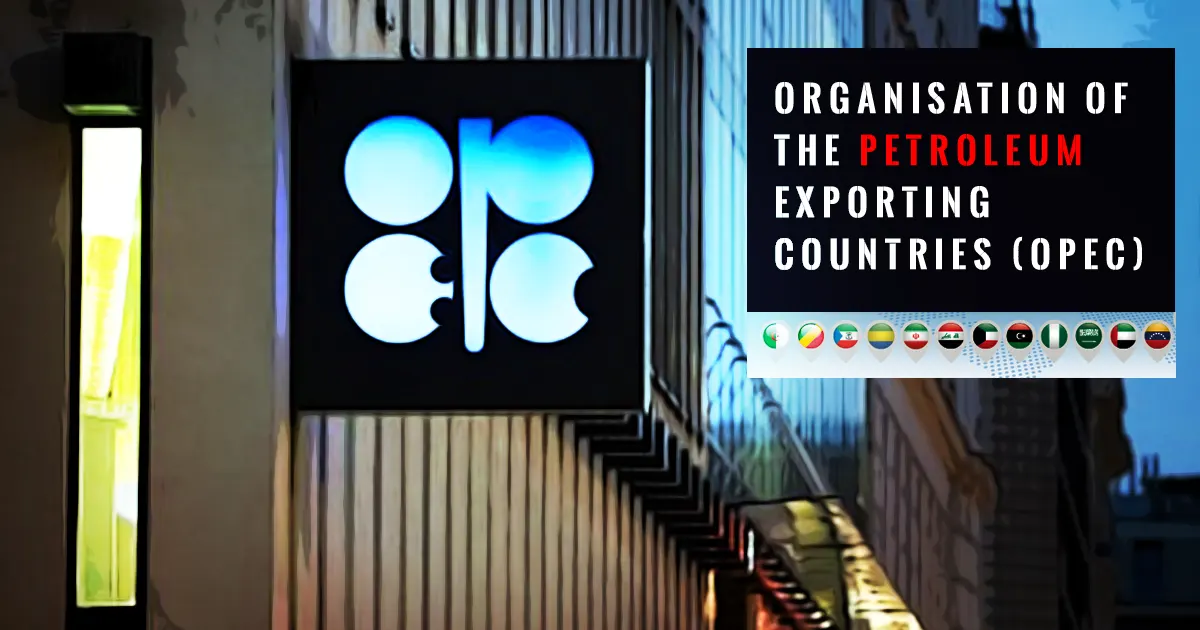GS 2 – International organisation

The Organisation of the Petroleum Exporting Countries (OPEC) is a permanent intergovernmental body established in 1960 during the Baghdad Conference. It was formed to coordinate and unify petroleum policies among member countries.
Founding Members: Iran, Iraq, Kuwait, Saudi Arabia, and Venezuela.
Current Members: Algeria, Congo, Gabon, Equatorial Guinea, Iraq, Iran, Kuwait, Libya, Nigeria, Saudi Arabia, UAE, and Venezuela.
Secretariat: Vienna, Austria.
Objective:
- Ensure fair and stable oil prices for producers.
- Guarantee an efficient and uninterrupted supply of petroleum to consumers.
- Provide fair returns to investors in the petroleum industry.
Decision-Making: OPEC operates on a one member, one vote system, with decisions requiring unanimity.
Significance: OPEC members control 80% of the world’s proven crude oil reserves.
India relies heavily on OPEC for its energy needs:
- 70% of crude oil,
- 60% of Liquefied Petroleum Gas (LPG),
- 30% of Liquefied Natural Gas (LNG),
- 45% of petroleum product demand.
Publication: World Oil Outlook
OPEC Fund for International Development
Established in 1976, it is a multilateral financial institution dedicated to providing development assistance.
Unique in its mandate, it channels resources from member countries to non-member countries.
Organisation of the Petroleum Exporting Countries Plus (OPEC+)
- Formation: Created in 2016 and also known as the Vienna Group.
- Composition: OPEC members plus 10 non-OPEC oil-exporting nations, including:
- Azerbaijan, Bahrain, Brunei, Kazakhstan, Malaysia, Mexico, Oman, Russia, South Sudan, and Sudan.
- Production Share: Collectively responsible for producing 40% of the world’s crude oil.
- Declaration of Cooperation: OPEC+ members agreed to production adjustments aimed at achieving stability in the global oil market for the benefit of both producers and consumers.




